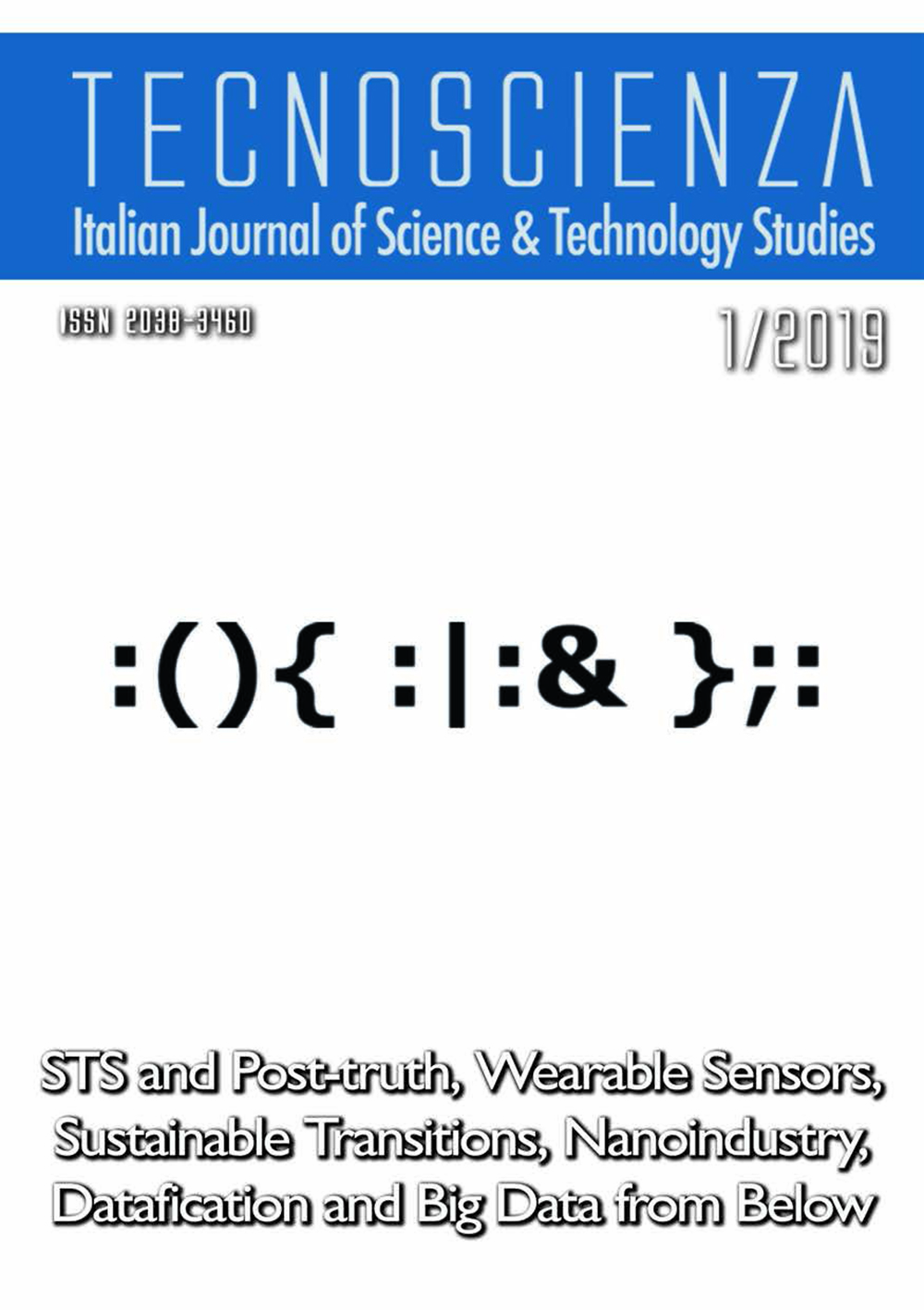Wearable Sensors. Exploring EU Policy Narratives by Engaging the Extended Peer Community
DOI:
https://doi.org/10.6092/issn.2038-3460/17426Keywords:
e-health policy, European Union, knowledge assessment, wearable sensors, techno-scientific imaginariesAbstract
Wearable sensors that allow communicating patient’s state of health to their physicians without the need for their physical presence, are offered with grand promises to both patients, doctors and other communities. This paper looks at how this technological promise is influencing policy making in the EU about future healthcare. In particular, we use knowledge assessment concepts to examine the pedigree of claims and assumptions in e-health related EU policy documents, deepening the examination of the narratives with engagement of relevant actors, i.e. those that are part of the extended peer community. We found that even if the proposal of ehealth is attractive to many, there are many disconnects about both bodies of knowledge and the apparently disjointed imaginaries about the role of these technologies to address different challenges in the healthcare sector.





